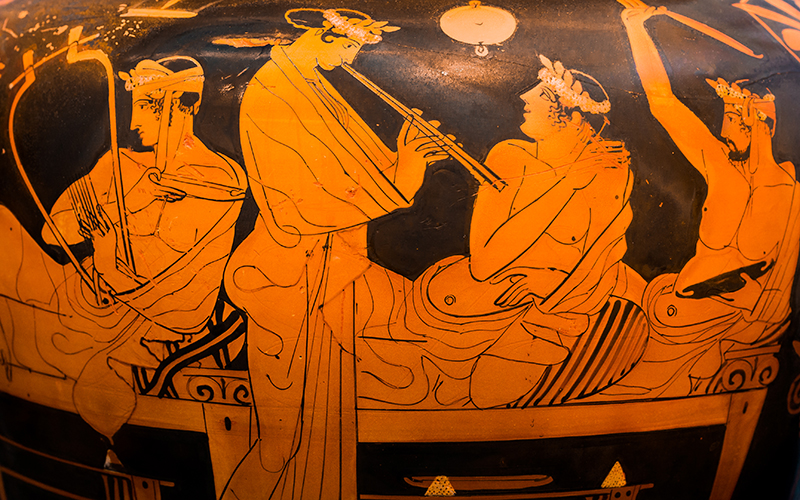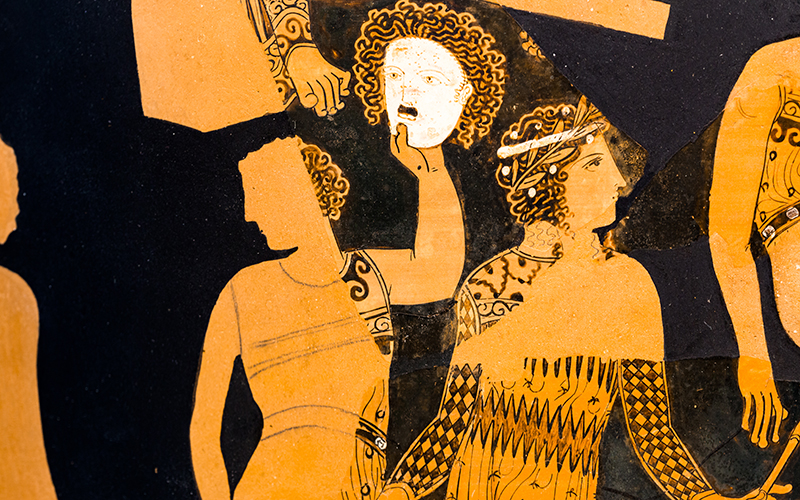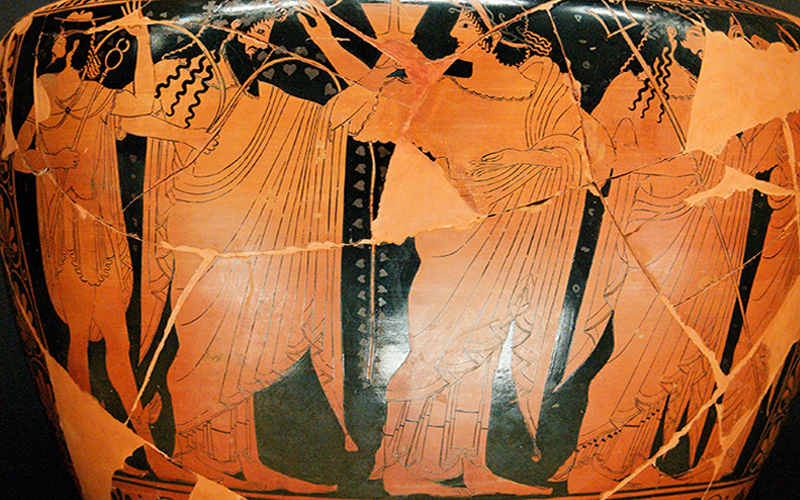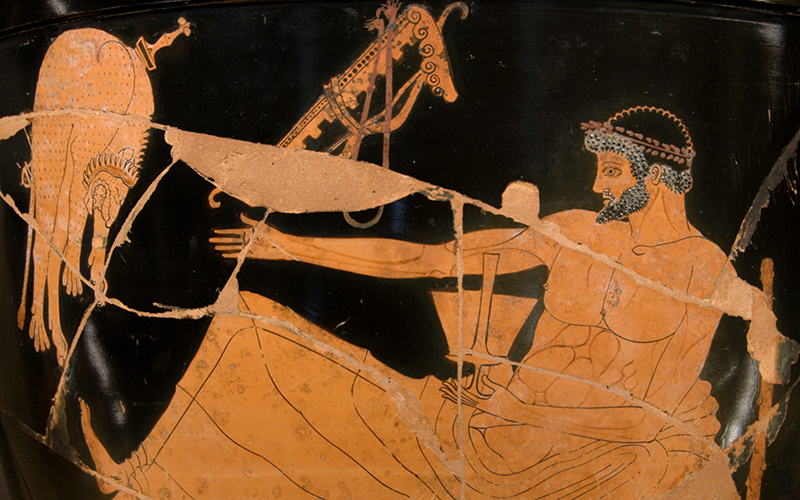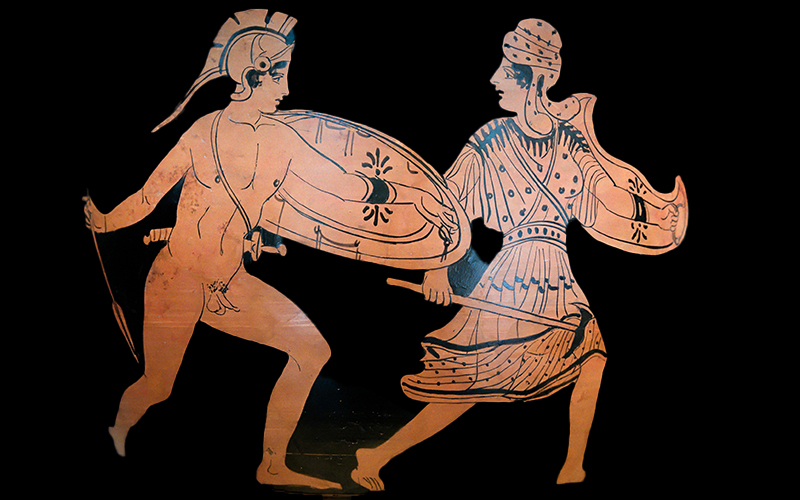
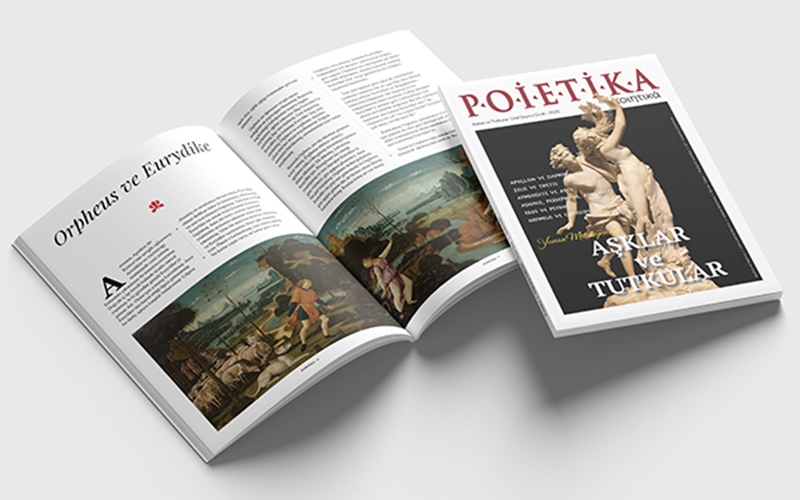



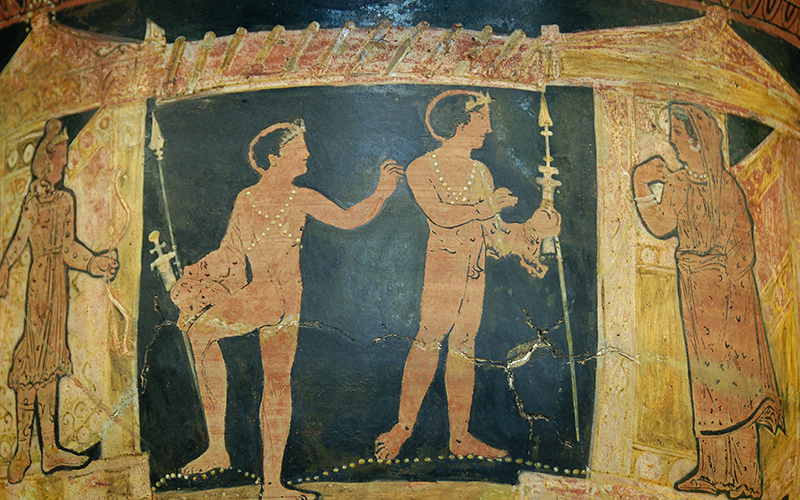
According to reports, Iphigenia has fled from Tauris—where she has served for years as the high priestess of the Temple of Artemis—alongside her brother Orestes and his close friend Pylades.
As known, Orestes had killed his mother, Queen Clytemnestra, in order to avenge the murder of his father, King Agamemnon. Since then, he had been relentlessly pursued by the Furies (Erinyes), who drove him nearly to madness.
Following a prophecy by the god Apollo, Orestes journeyed with Pylades to Tauris, believing that retrieving the statue of Artemis from her temple and bringing it back to Argos would purify him and end the torment inflicted by the Furies.
According to eyewitnesses, two strangers arrived at Tauris in the early morning. By local law, all foreigners were to be captured and sacrificed to Artemis. Thus, the guards escorted the two men to the temple to be offered to the goddess.
As always, the high priestess Iphigenia questioned the prisoners about their origins. At first, the two strangers were reluctant to speak, dismissing the inquiry with comments like, “We are to be sacrificed anyway, what does it matter?” But Iphigenia insisted.
Eventually, without revealing his identity, Orestes began to answer her questions. Iphigenia asked about Argos, about King Agamemnon, and Queen Clytemnestra. Orestes, increasingly suspicious, was surprised by her detailed knowledge of Argive affairs.
Unknown to them, Iphigenia herself was once thought to have been sacrificed by her father, Agamemnon, at Aulis to appease Artemis before the Trojan expedition. However, at the last moment, the goddess had replaced her with a deer and whisked her away to Tauris, where she became a priestess in Artemis' temple.
Longing for home, Iphigenia wished to send a letter to her family in Argos and decided to entrust one of the strangers with the task—unaware that she was speaking to her own brother. She promised to spare the life of one of them in return for delivering the letter.
Orestes, unwilling to trade his friend’s life for his own, insisted on being sacrificed and asked that Pylades be the one to carry the letter. Iphigenia requested an oath in return, which Pylades readily gave. When asked who the letter should be delivered to, Iphigenia revealed:
“You will deliver this letter to Orestes, the son of Agamemnon.
Tell him that Iphigenia—who was thought to have died in sacrifice at Aulis—still lives and sends this message.”
(Iphigenia in Tauris, lines 669–671)
According to witnesses present in the temple, both men were astonished. In response, Pylades said:
“By binding me with such a simple oath,
you have sworn a far greater one yourself.
I will not delay in keeping my word.
Orestes—here is a letter from your sister,
who stands before you now.”
(Iphigenia in Tauris, lines 88–92)
Orestes immediately embraced his sister, who had stood before him all along.
Together, they began planning their escape from Tauris. Iphigenia approached King Thoas with a request. She claimed that the two captives were tainted with the sin of matricide and could not be offered to the goddess without first undergoing purification. She also declared that the statue of Artemis itself had been defiled and needed to be ritually cleansed in seawater. Thoas, trusting Iphigenia, allowed the ceremony to proceed—on the condition that it be done in private.
Using the opportunity, Iphigenia, Orestes, and Pylades evaded the guards, boarded their ship, and fled—bringing the statue of Artemis with them.
When Thoas discovered what had happened, he ordered his soldiers to pursue them by land and sea to recapture and sacrifice them. But at that moment, the goddess Athena appeared and commanded Thoas to abandon his pursuit. The king obeyed, calling off the chase.
Sources confirm that Iphigenia, Orestes, and Pylades are now sailing toward Argos.
